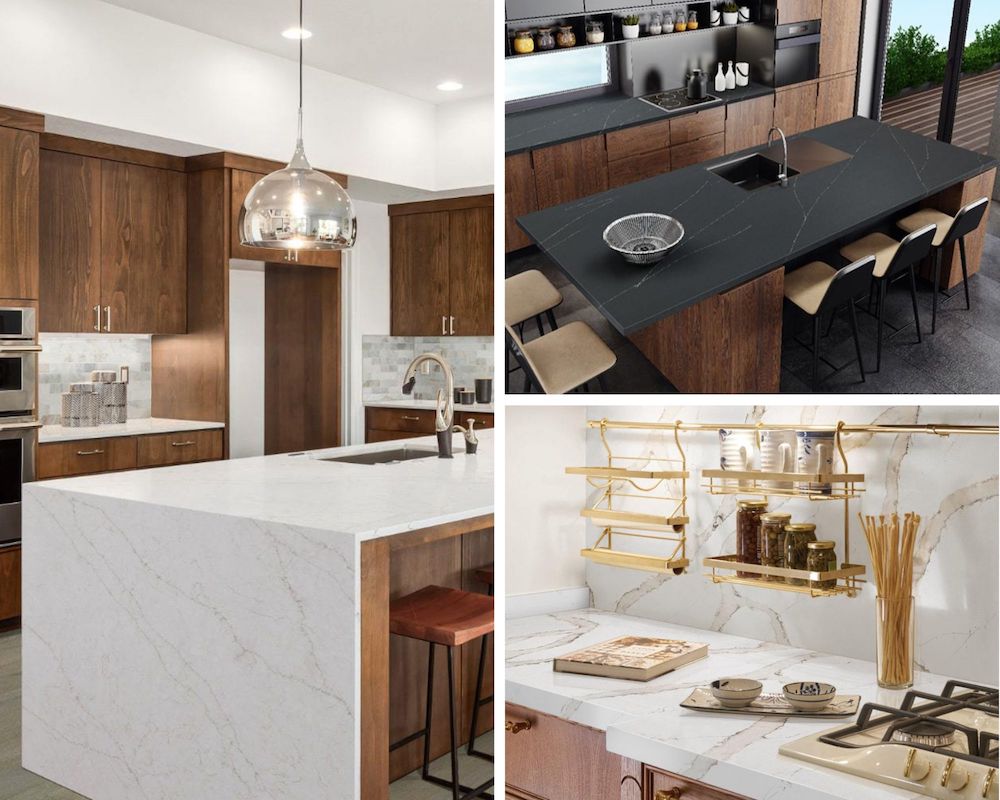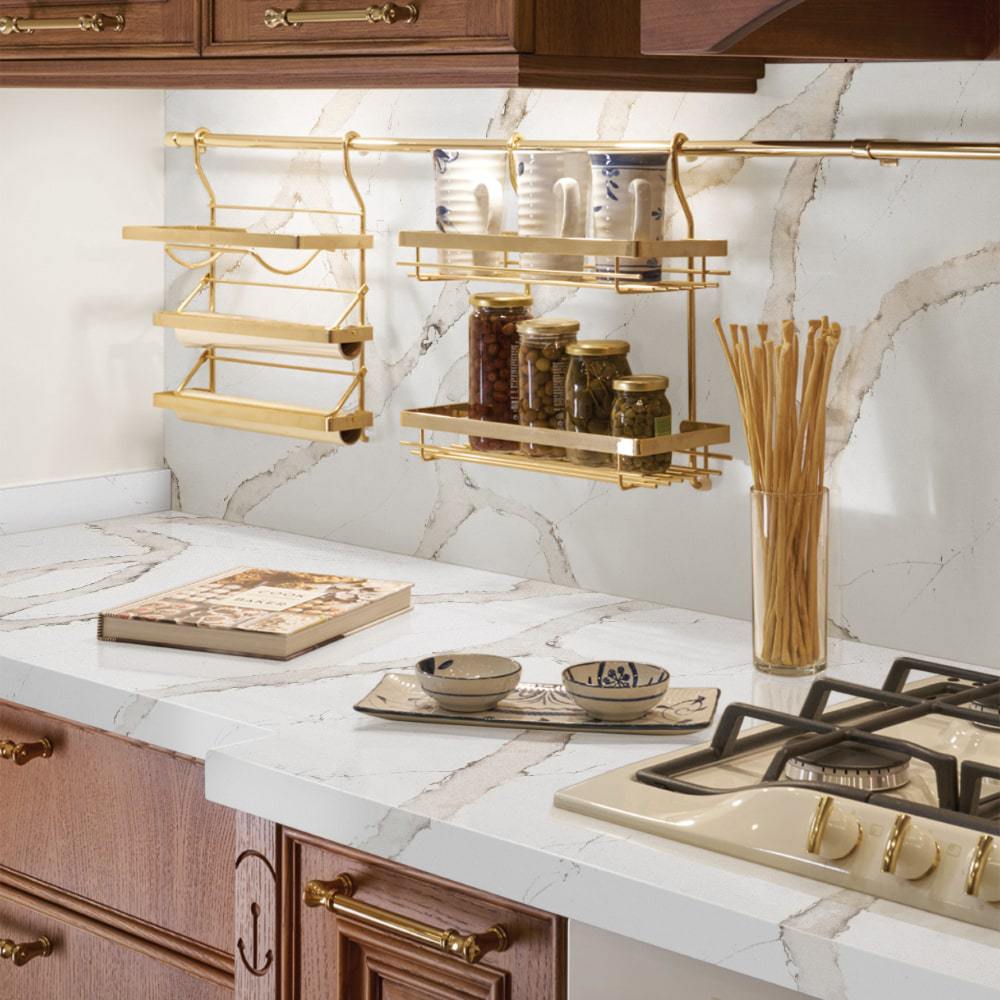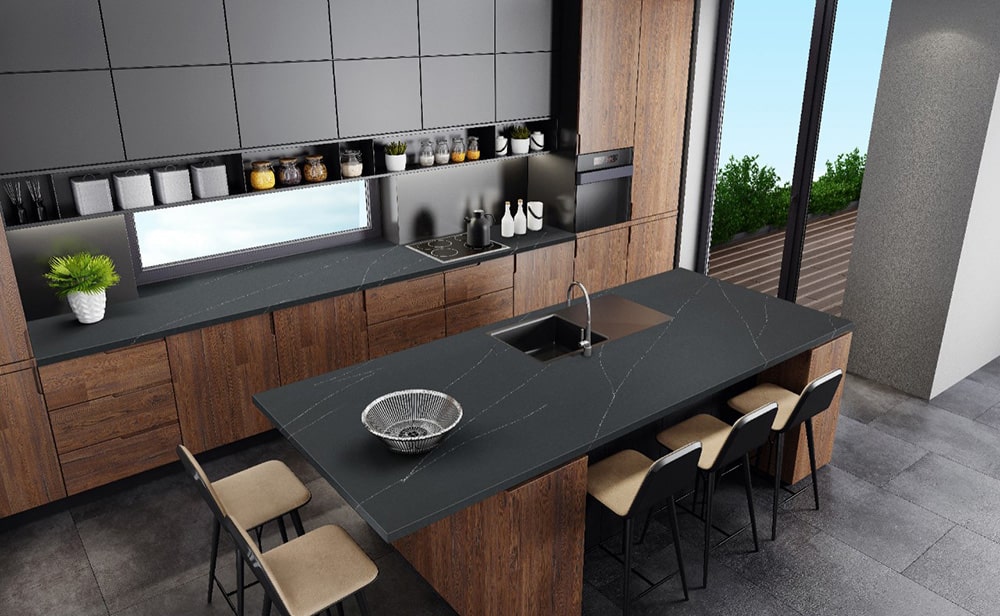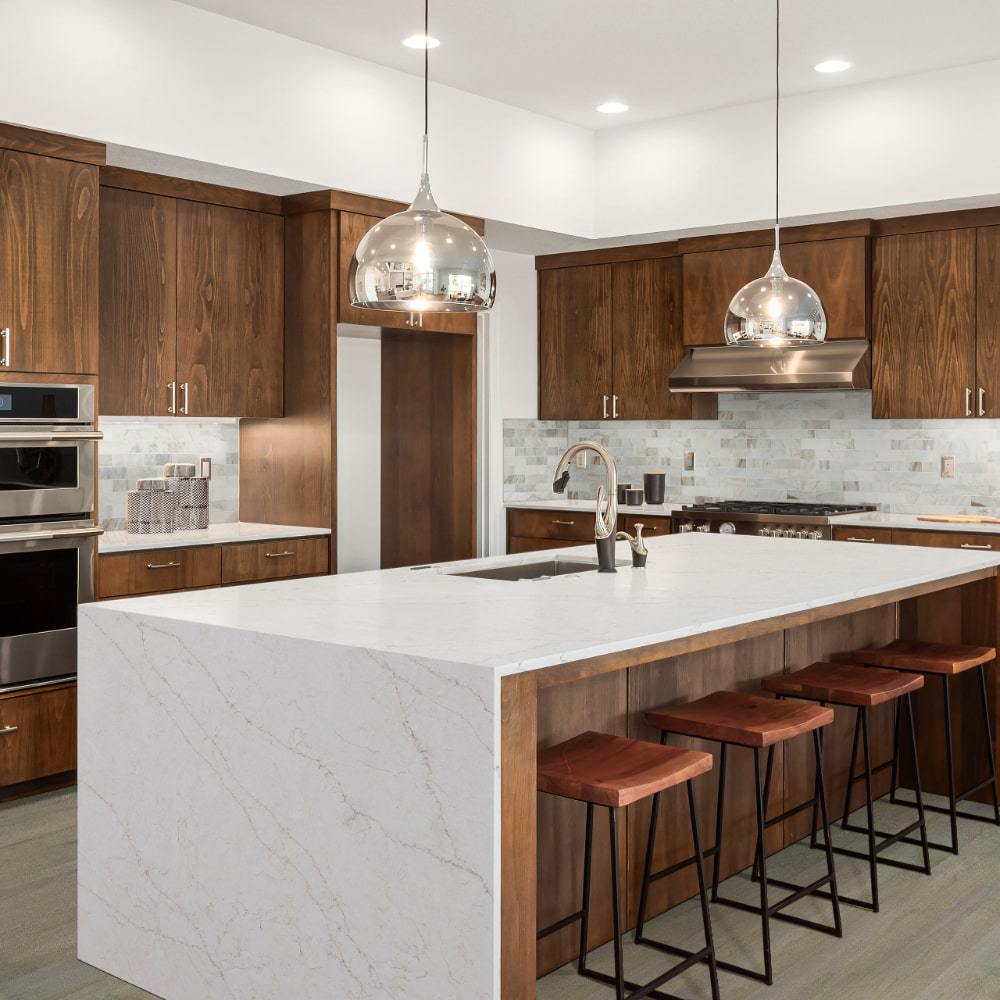Are Quartz Countertops A Natural Stone Slab Countertop?
October 15, 2018
 Quartz is 100 percent a natural material made up of a white or colorless mineral. But, unlike natural stone, such as marble, granite, and soapstone, quartz countertops are categorized as a man-made product.
Quartz is 100 percent a natural material made up of a white or colorless mineral. But, unlike natural stone, such as marble, granite, and soapstone, quartz countertops are categorized as a man-made product.
While they do consist of natural quartz stone, they also include added resins, colors, and other materials to help enhance its strength and style. Read on to learn all about how it’s made, why it rivals natural stone, and how it’s different than other man-made surfaces.
How Quartz Is Made
Quartz countertops can consist of approximately 93 to 95 percent quartz and 5 to 7 percent resin by weight. Engineered quartz is manufactured using Italian Bretonstone technology that blends pulverized quartz or other natural stone aggregates like granite and marble with a polymer resin mix. The air is removed from the material that is then heated and shaped into a slab. Other things like ceramic, mirror, or glass may also be added to give it a distinct style.
During the process, color can also be added to help give the quartz countertop a neutral or bold look. The wide range of color options is one of the reasons why homeowners and designers alike love man-made quartz.
How It Rivals Stone
Quartz countertops differ from natural stone counters in several ways. While some fancy the unpredictable patterns and movement found in natural stone, others rely on the consistency quartz brings. Whether it’s the veining, sparkles, or coloring featured in a sample, what you see is exactly what will be installed in your kitchen or bathroom. You also have the option to select products that mimic stone, including quartz that looks like marble.
It’s also nearly indestructible thanks to its scratch-, stain-, heat-, scorch-, and mold-resistant properties. The non-porous surface makes it 99.9 percent bacteria-free, so it’s a much healthier choice especially in the kitchen, whereas porous natural stone like real marble will soak up every spill and splash.
Another plus is that it requires very little maintenance. While you need to reseal natural stone every few months or every year, quartz never needs sealing. Keeping it clean is simple, too, with just a soft sponge, water, and dish soap for more stubborn grime.
How It Differs from Laminates
Many synthetic countertops are made of a plastic laminate that’s made from paper or fabric mixed with a resin, such as the well-known company Formica, while others are made of a layer of laminate craft paper and resin that covers particleboard. Quartz countertops, on the other hand, are solid, durable surfaces.
The downside to these inexpensive, man-made products is that they’re not as porous as quartz and will be prone to liquid absorption. They also can’t be repaired if cut, scratched, dented, or stained.
Quartz offers many benefits natural stone, and other laminates don’t. Now that you’ve discovered how durable and low maintenance quartz is, you’ll want to add the engineered stone to your kitchen or bath! If you need guidance, we are here to help. Please chat online with our team right now, visit an MSI showroom near you, or contact an authorized MSI retailer in your area.
 Calacatta Goa Quartz
Calacatta Goa Quartz Soapstone Metropolis Quartz
Soapstone Metropolis Quartz Calacatta Karmelo Quartz
Calacatta Karmelo Quartz